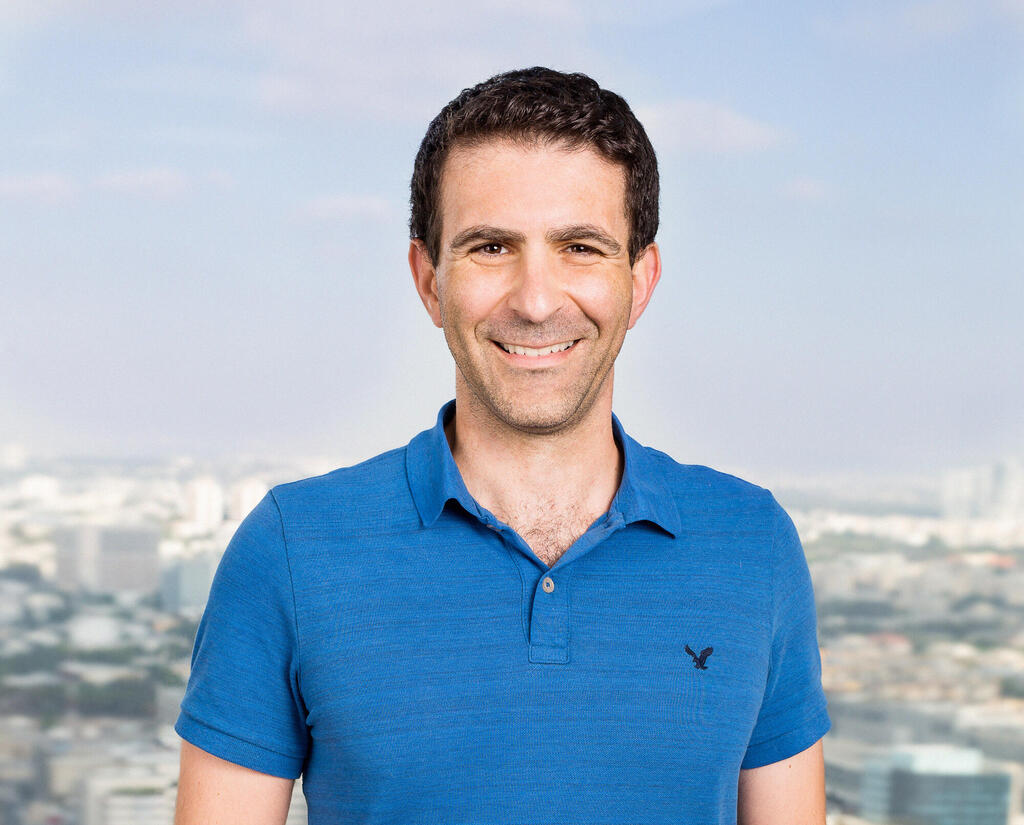
Israeli high-tech faces existential questions post-war
Unraveling the complex challenges of talent shortages, political uncertainties, and the struggle for global relevance in the wake of recent geopolitical events
What is the true state of Israeli high-tech?
The answer to this question is critical not only for the industry but for the entire Israeli economy, as it relies on it for both half of exports and a quarter of tax revenues. The evidence from the field is contradictory. On the one hand, there are funding rounds making headlines here and there, such as VAST Data's last week at a $9.1 billion, or Next Insurance raising $265 million, or AI21 taking its Series C to $208 million with big names like Intel Capital and Comcast Ventures.
On the other hand, the ‘exits’ report published last week by the accounting firm PwC Israel revealed the depth of the weakness in sales transactions and initial public offerings of Israeli companies. There was a significant 56% drop in acquisitions and public offerings of Israeli companies, with the total volume amounting to only $7.5 billion. Also, the closing of the real estate unicorn Veev two weeks ago does not contribute to optimism. From an open, active, and exposed industry, local high-tech has seemingly now gone into a bunker. In every company, big or small, about a fifth of the employees are recruited as reserves to the IDF, and it is unknown when matters might return to normal.
2 View gallery


AI21 co-founder Yoav Shoham and Veev co-founder Ami Avrahami.
(Photos: Roei Shur, Veev)
As a result, the industry went underground: on the one hand, everyone works harder in an attempt to deliver what was promised to the customers, and on the other hand, everyone wants to maintain industrial peace so as not to alarm existing customers and especially future customers and investors.
"The capital raisings we are seeing today are an anomaly and not the normal situation at the moment," says a senior executive in the Israeli venture capital fund industry. According to him, "After years in which we already forgot that such a thing existed, the 'Israeli discount' is back. Investors, especially foreigners who do not have permanent representatives here, are afraid that one day more employees from these companies will be recruited to the IDF reserves and are going to invest in American and European startups where an awakening is already being felt after a difficult year and a half.
“What is saddest is that Israeli high-tech could have reached 7.10 in a completely different situation. We have ourselves to blame for a difficult 2023 because of the political situation. What crashed in 2022 was mainly consumer applications, while Israeli high-tech, which specializes in deep technologies, continued to receive funding and deals. We could have maintained this special place, but then came the judicial coup, followed by the war, and this gave the industry a double knock-out," he explains.
In the past, in the early 2000s, the Israeli discount reached rates of 20%-30% on the value of the company, but over time it was completely erased. Today, the talk in the industry is about the fact that foreign funds that do not have a permanent presence in Israel are even afraid to submit proposals for investment in an Israeli company to the investment committee, and if they do so, it will have to be at a bargain price. Senior executives in the Israeli VC industry testify that the foreign funds that do not have representatives here have stopped looking for investments because there is a sufficient supply of companies abroad.
"It's cheaper to invest in American companies"
The opening of the negative gap with the U.S. and even with Europe, both in terms of value and especially in terms of activity in general, is one of the biggest concerns in the industry today. It started already in the middle of the year when Israel fell from fifth place in terms of recruitment volumes for high-tech companies to tenth place, with countries like Germany and France overtaking start-up nation. In the first half of 2023, capital raising in Israel fell by 75%. There was a certain stabilization in the intensity of the collapse in the third quarter. Despite the war, the chances are high that the fourth quarter in Israel will not actually be catastrophic, both because it is a seasonally strong quarter and also because two large rounds have already been completed - that of Next and that of VAST, which together reach $400 million. Moreover, 2023 is anyway a kind of lost year in global and Israeli high-tech, mainly as a result of the judicial coup. Many investors from abroad point out that, for them, the danger of regime change in Israel is seen as more threatening than war, so apparently the matter dropping from the agenda can also release the funding bottleneck here.
All eyes are now on 2024, which appears to be a year of recovery in global high-tech, with Nasdaq already trading today at the levels of 2021. As soon as the investment funds see that the IPO window has opened, the reluctance to invest in more mature companies will also decrease, and the large rounds that produce new unicorns will return, even if not with the same intensity as in 2021. 2024 can be good for Israeli high-tech also because it will be marked by deep technologies that will fill the worlds of artificial intelligence, and here Israel has something to offer, especially in the field of hardware.
"In the U.S., a resurgence in high-tech investments is already felt, and there is optimism towards 2024 that began as soon as the Fed indicated that we are where it wants to be in terms of inflation," an entrepreneur at one of the startup companies that completed a funding round in recent weeks told Calcalist. "Investors are no longer afraid and do not question what will happen with the interest rate and that has an effect," he added.
To illustrate what Israel may miss out on, it is enough to look at what is happening in funding rounds for startups in the field of chips, one of the unique specialties of the local ecosystem. The technological leap in relation to artificial intelligence has boosted demand for chips and with it also the funding which amounted to $5.2 billion in the USA in the third quarter. This number reflects an annual increase of 68% and a return to the record levels of 2021.
One of the significant changes being talked about in the industry today is the shift of the center of gravity from foreign funds to Israeli funds - meaning the latter will have to be much more active. During the high tide, some of these VCs complained that the giants coming from abroad snatched up the good companies with their big money and did not leave enough space for activity. The current situation seemingly opens up new opportunities for Israeli money, but they are, of course, more limited in amounts.
"70% of the money for companies in the early stages came from the foreign funds and that's where the biggest difficulty will be in the coming period," says a senior executive at an Israeli VC. "We as Israeli funds will try to do as much as possible so that the industry continues at full strength, but opening a gap before 2024 is inevitable. The next two years will be difficult."
All in all, local venture capital funds have quite a bit of money left over from the strong years, and some of them, such as Qumra Capital and TLV Partners, for example, managed to close more than $200 million in funding for new funds during the past summer. Viola Credit closed $200 million in funding for a debt fund.
Gal Gitter, Partner and Managing Director at the American Ibex Investors fund, believes that the problem is not the willingness of the funds to invest but the performance of the companies that have deteriorated in large part. Ibex is currently investing from its second fund of $100 million that is intended for Israel and whose fundraising was completed at the end of 2020. Among its portfolio companies are Cobwebs, which was sold this year for $200 million, and Glassbox, which is traded on the Tel Aviv Stock Exchange.
"The companies that are raising money like VAST, for example, are companies that are growing and showing efficient growth, but the problem is that there are too many companies that were hot in the past and today are simply not doing well enough. Even in such companies, there is a willingness to invest, but they are not yet ready for a round of fundraising at a decreasing value," Gitter explains.
He adds a surprising statement: "It is currently cheaper to invest in American companies than Israeli ones because the American companies have already accepted reality and the Israeli ones have not yet. We are always following what is happening in the U.S., and this is also true now." According to him, "We continue to invest as usual and also see with the other investors that they see the risk as being short-term, and perhaps even with a more distant view, there is an expectation that Israel will become a more stable country politically and geopolitically," Gitter continues.
"We see the lack of impact in the purchases of two cyber companies by Palo Alto already deep into the war, and this is related to the fact that they have a big Israeli team here and know the region. This is also true for companies like Cisco or Microsoft that have been operating here for a long time. For those who are not here permanently, it is more difficult to price the risk, so they will prefer to postpone transactions in Israel until after the war."
“Dangerous questions”
Another effect that Gitter identifies among investors, especially the foreigners, are questions about the business continuity of the smaller high-tech companies, where the critical mass of employees who are absent due to reserve service is more acute.
"The customers and investors are starting to ask the companies; they answer in the overwhelming majority that there is no fear about the future, but these questions arise and their very existence, especially from the customers' side, is dangerous. At the moment, there is no harm at the business level, and it is mainly focused on development, because that is where the majority of the manpower of the start-ups in Israel is."
Another concern that has already arisen throughout 2023 and is now arising even more strongly is the establishment of new startups. Since the judicial coup began, the number of new companies established in Israel has shrunk dramatically, and the majority of those established were registered in the U.S. In the last two months, for obvious reasons, almost no new startups have arisen, and many investors say that, unlike in the past, there is currently not a large enough supply of new ventures in Israel.
In response to this question, there is broad agreement among all the interviewees: there are indeed fewer new startups that were established this year, but those that were established are infinitely better than those that were established in 2021. “Any one who decided to found a startup in the past year is an entrepreneur that really felt an urge to do so. Such entrepreneurs and ideas are what usually result in successful startups and those are the ones in which investors are willing to invest more money.”














